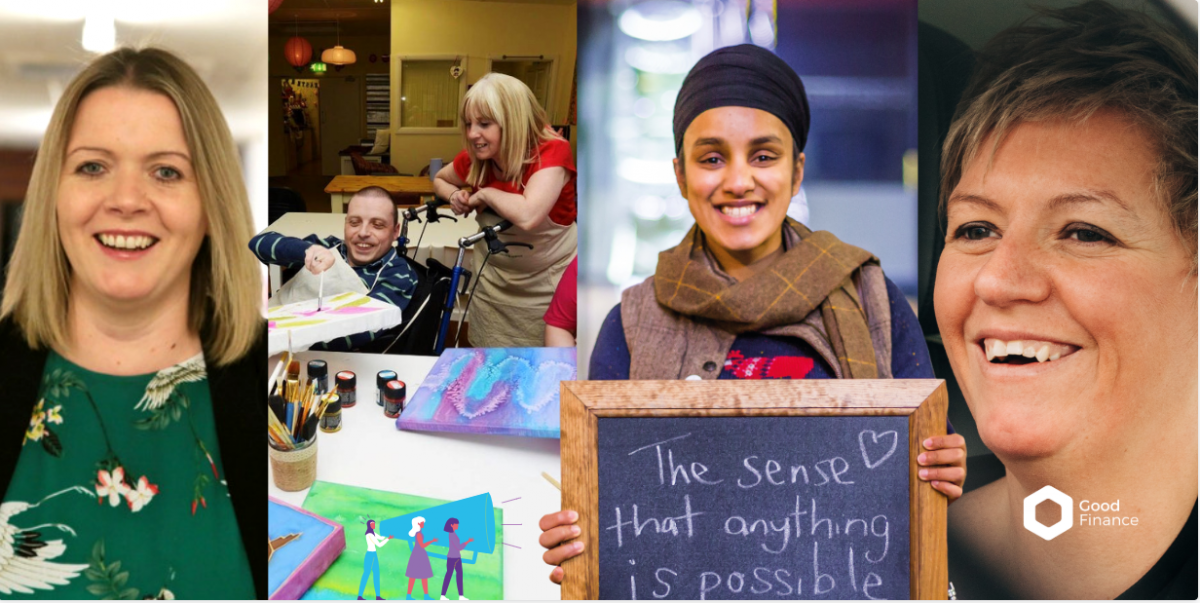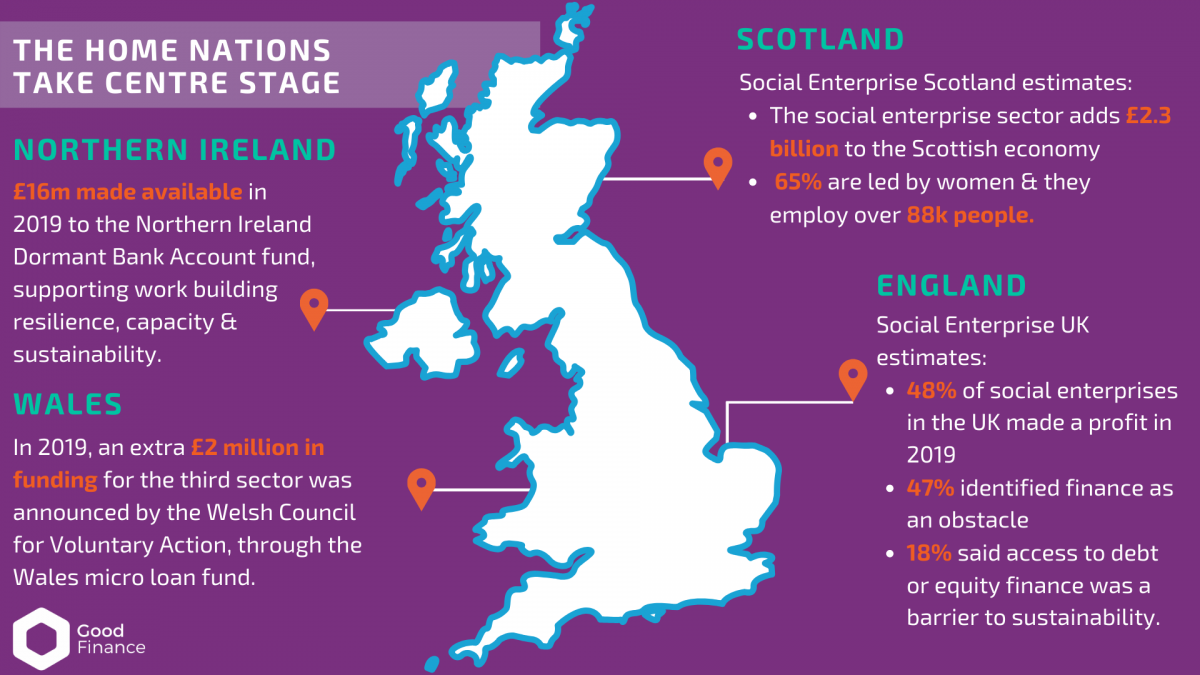Ahead of International Women’s Day last weekend, we spoke to 4 female social entrepreneurs from across the UK to bring the Home Nations centre stage for the occasion.
Social Enterprise UK estimates that 40% of social enterprise leaders are women, and research indicates that nearly two thirds of the charity sector workforce are female.
Whilst the findings are positive, we also know there is still a long way to go in terms of truly reaching equality, both demographically and geographically. Social investment needs to be part of this journey.
We have some way to go, but how far have we come? Women across all four home nations share their social investment insights around to bring you the stories behind the statistics.
Wales: Kelly Davies, Co-Founder, The Goodwash Company
Last year, an extra £2 million in funding for the third sector in Wales was announced by the Welsh Council for Voluntary Action, through the Wales micro loan fund. Economy Minister Ken Skates said “The Welsh Government is absolutely committed to supporting social enterprises and fully recognises their importance to our economy and the social fabric of Wales”.
Kelly Davies, one of the Founders of The Goodwash Company echoed this sentiment. She told us “Social enterprises are growing in Wales, especially as a result of consumers becoming more conscious. Increasingly now, they have an expectation of the business they are buy from to do good”
When it came to social investment, she stressed the importance of understanding the distinctions between repayable finance and grant, “there are lots of options available to us, particularly through the WCVA Social Investment Cymru team. Increasingly I get frustrated by people who say there aren't. I believe this due to a lack of understanding. Social investment is not a grant, it has to be repaid but with the right business case, there is plenty of money out there for social businesses wanting to grow”.
If you want to find out more about social investment and when it might be right for your organisation, try this 2 minute diagnostic tool.
Scotland: Kirsty Thomson, Founder & CEO, The Circle Dundee
Social Enterprise Scotland estimates that the social enterprise sector adds £2.3 billion to the Scottish economy. 65% are led by women, employing over 88 thousand people or which 64% are female.
Kirsty Thomson from Circle Dundee told us “We are very fortunate to have a huge wealth of support for social entrepreneurs in Scotland and we are seeing an increase in the number of people who are interested in setting up businesses that will make a difference in our communities and to the environment”, this increase is reflected by the 7% increase in the number of social enterprises recorded in Scotland from the 2017 to 2019 census.
The Circle has become a vibrant hub in Dundee, used by several people for different things, from community events to workspace. It was no small task to bring The Circle to life and Kirsty leveraged social investment to do so, “social finance enabled me to take my vision into reality at The Circle when starting up and ensure we had a business model capable of paying this back. We needed to get traction and demonstrate our social impact. We have also secured finance for growth and more recently we are looking at securing social finance to replicate and scale the work we are doing”. Find out more about The Circle’s story working with UnLtd here.
Northern Ireland: Martina Bell, Founder and Managing Director, Artspace
In September last year, £16m was made available to the Northern Ireland Dormant Bank Account fund, the purpose of the fund is to support work building resilience, capacity and sustainability in the sector. This was welcomed by many, the release of these funds seen as an opportunity to make a significant difference to social enterprises right across Northern Ireland.
Martina Bell of Artspace who told us about her experiences running a social enterprise in Northern Ireland, “there is a vibrant Social Enterprise sector here in Northern Ireland where community led organisations are directly impacting on their local communities by developing facilities and often providing essential goods and service”.
Martina also shared her experiences taking on social investment “Nearly a decade ago we had an aspiration to establish our business and develop our very own facility. We were able to work with Ulster Community Investment Trust (UCIT) to support the ambitious plans that we had. UCIT listened to our plans and understood where we were coming from – in many ways they ‘speak finance but hear people’. Those distant aspirations are now very much a reality and the Artspace facility offers a daily lifeline to all who use it”.
England - Immy Kaur previously Co-Founder of Impact Hub Birmingham, now working on the creation of Civic Square.
The most recent Social Enterprise UK state of the sector report painted a positive picture for social enterprises; 48% making a profit last year. However, as the social enterprise sector gains traction and momentum, access to finance remains an issue. 47% identified finance as an obstacle, and 18% identified access to debt or equity finance as a barrier to growth / sustainability.
Immy Kaur, Founder of Birmingham Impact Hub, has certainly had her frustrations with investors. By her own admission, they were almost broken three years ago from trying to navigate through the social investment space. However, now as they look to their next innovative and exciting venture, Civic Square, she said “The most helpful thing someone said to me in 2019 was ‘It’s not that I need you to conform to our funding boxes, I believe in the big vision, I just need to understand more clearly what the steps are to get there’”.

If you’re considering social investment, it's important to keep in mind that the process takes time. As a starting point, you can find a list of social investors in the Good Finance directory.
To hear from more inspirational women, check out our International Women's Day video featuring words of wisdom from across the social impact sector.

